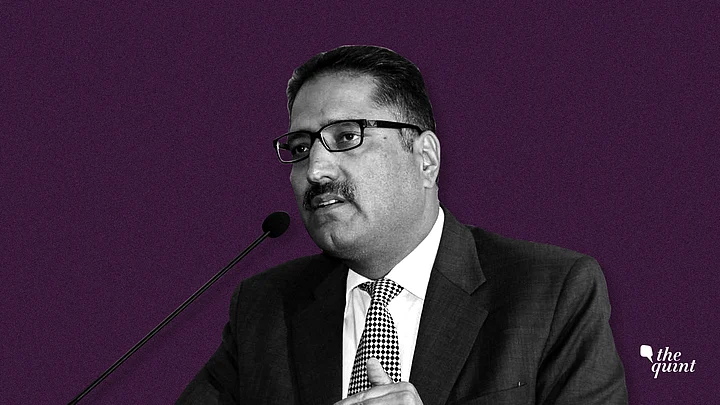“In Kashmir, we have done journalism with pride and will continue to highlight what happens on ground,” read one of the last tweets Rising Kashmir’s editor-in-chief Syed Shujaat Bukhari. Hours after this tweet, the journalist was shot dead by unknown assailants at the Press Enclave in Jammu and Kashmir’s Srinagar.
Bukhari was a veteran, a primer of journalistic brilliance in the Valley and a 'voice of sanity’ in Kashmir. Even the last reports he shared on his timeline were about the first United Nations report on human rights violation in Kashmir.
A Journalist Par Excellence
In a column he wrote for Rising Kashmir, the slain journalist had backed the government’s announcement of ceasefire during Ramzan: “Whether these linkages can be stitched together or not, the ground for creating a space for peace and reconciliation is not missing on both sides.”
Before starting the Srinagar-based daily, Bukhari, 50, worked as the bureau chief of The Hindu for nearly 15 years.
“Shujaat Bukhari and I were colleagues at The Hindu. He was a formidable reporter, and, as editor of Rising Kashmir, a powerful voice for the embattled media fraternity, a true voice of sanity and reason,” said The Wire’s editor Siddharth Varadarajan.
During the spurt in Kashmir’s militancy in 2015, Bukhari had warned of its evils in an opinion piece for The Quint: “As long as Delhi refuses to engage with Kashmiris for resolving the larger political problem, the vaccuum will be filled by forces like them.”
The veteran journalist was instrumental in organising several conferences for peace in the Kashmir Valley. He was also part of the Track II process with Pakistan.
In a critical opinion piece for Scroll, Bukhari had recently criticised the Centre for the civilian killings in the valley:
Do these encounters help in bringing peace, or have they pushed Kashmir into a situation where violence has become a norm?
In a hard-hitting piece for Newslaundry, titled ‘An Untraceable Murder’, Bukhari had lamented the state of journalists’ welfare in Kashmir, and their families – particularly in the aftermath of their deaths. “Though working conditions for journalists in Kashmir have seen a change, the professional hazards continue to loom large,” he had written in 2012.
A hardcore academic who even wrote in Kashmiri and Urdu, he was also the president of Adbee Markaz Kamraz, a cultural and literary organisation in the Valley.
According to Newslaundry, Bukhari had already survived three assassination attempts.
An Accomplished Fellow
The extensively travelled journalist did his Masters in Journalism from Ateneo de Manila University, Manila as a fellow of Asian Centre for Journalism, Singapore. He was also a recipient of the World Press Institute (WPI) USA fellowship and Asian Centre for Journalism Singapore fellowship.
Bukhari was also a fellow at the East West Centre in Hawaii, USA.
As Indian media mourns the loss of one of the most prominent voices of Kashmir, the death of Shujaat Bukhari marks another low in the rising animosity towards journalists in Kashmir.
(At The Quint, we question everything. Play an active role in shaping our journalism by becoming a member today.)
